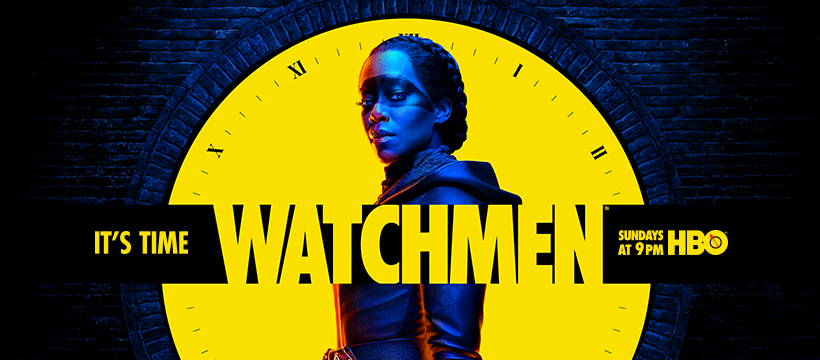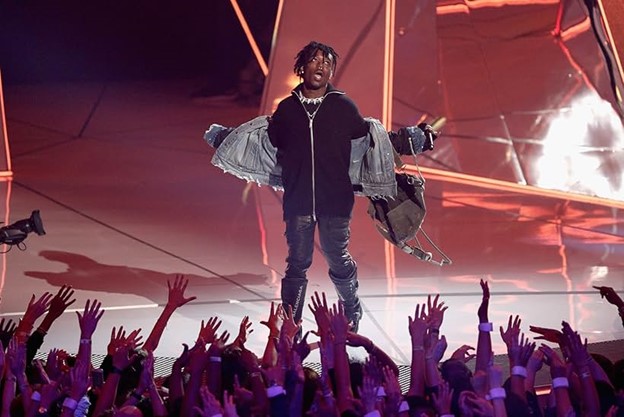Damon Lindelof’s “Watchmen,” currently airing on HBO, is the best kind of reboot. It takes the elements that made the comic book series a classic and mixes them up for a new medium and a new era. The show functions not only as a tribute to the comics but, crucially, to its own story, which uses the world of its source material as a jumping-off point to do something new.
For those unfamiliar with “Watchmen,” it is hard to know where to begin in describing it: first off, there’s the limited series of comic books, published as a graphic novel in 1987. Written by Alan Moore and drawn by Dave Gibbons, “Watchmen”used the tropes and form of superhero comic books with nods to other comic genres mixed in to tell a story that was more realistic than any prior superhero stories – the series smartly considered the psychology of people who would choose to dress up in tights and beat up crooks.
But it was more than just that: “Watchmen”both disparaged andcelebrated superheroes; it told a crazy sci-fi story; it examined comics as a storytelling medium; and it invented its own world, one in which the existence of superheroes affected the outcomes of the Vietnam War and the Cold War. Unlike the 2009 Zack Snyder film of the same name, the new HBO series is far from a straight-forward adaptation. It is a sequel, set in 2019, with a new protagonist, Angela Abar (Regina King), in a new major storyline, and new thematic obsessions – in particular, the persecution of black Americans and persistence of white supremacy. And as if that isn’t enough, the writers have written a series of in-world articles that help fill in details about the world’s alternate history, which HBO has been publishing online on a webpage called “Peteypedia.”
This show is a lot. So in the golden age of television, it might be asking too much of someone with no familiarity in the comics to take a deep-dive into this world. It would be a shame, though, if the only people watching this show were the original comic fans, because all of the dense world building and references are still just the backdrop, servicing an addictive and very human story at the show’s center.
The series creator, Damon Lindelof, who also created shows like “Lost”and “The Leftovers,” only continues to prove that he is a master storyteller at work. For example, episode five, “Little Fear of Lightning,” examines the lifelong effects of trauma, recalling “The Leftovers” story and themes by focusing on someone who may have seemed to be a side-character initially, Looking Glass (Tim Blake Nelson). His personal journey, from his experience with the comics’ climactic squid attack, to learning the conspiratorial truth behind this event, to his inability to adjust to his knowledge, is thoughtfully written and deeply-felt. The storyline ends in a harrowing cliffhanger that serves a reminder of how skilled “Lost” was at keeping viewers enthralled.
Of course, the comics’ lore is still there, so it is possible that the people who most appreciate this show will be those who read the original “Watchmen.”This reverence is evident in the series, though again, Lindelof is never content to simply regurgitate Moore and Gibbons’ work. Lindelof and his crew have found a way to tell an original story but also pay homage to its source material in original and thought provoking ways. For example, the opening shot of the fifth episode can be seen as a tribute to the first issue of the comic book. This interplay between building on the comics and telling a new, innovative story is what makes Lindelof’s “Watchmen” so invigorating.
Unlike the 2009 movie, the series proved almost immediately that it lives up to the spirit and intelligence of its classic source material. With no signs of slowing down, the new question is whether the show is excellent enough to be considered as groundbreaking to television as the original “Watchmen” was to comic books. It’s too early to tell, but given how the showis so far succeeding as both a thrilling genre story and a deep examination piece on race and racism, we might have another classic bearing the name “Watchmen” on our hands.
Caleb Coyne can be reached at [email protected].



















